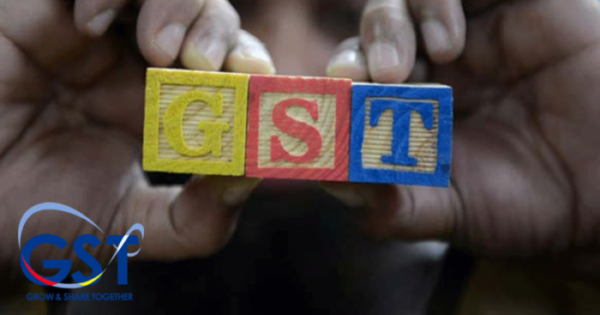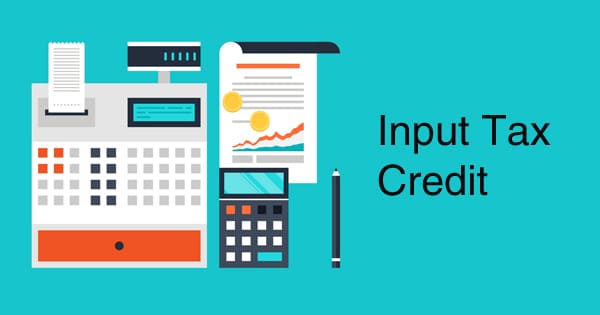- Introduction
As per section 140 of the CGST Act, 2017 read with Rule 117 of the CGST Rules, 2017, GST TRAN -1 is to be filed by those taxpayers who are eligible to claim the credit on the tax already paid in the pre-GST regime. Such credit can be in regard to VAT/Service Tax/Excise. However, certain classes of persons/taxpayers including the composition dealers under the GST cannot claim said credit as they are otherwise not eligible to avail ITC under the GST law.
2. Timeline to file GST TRAN-1 prescribed by GST law
Section 140 of the CGST Act, 2017 mandated that credit of VAT/Service Tax/Excise can be carried forward in such manner as may be prescribed but was silent about time period. However as per Rule -117 of the GGST Rules, 2017 the taxpayers should have filed the application in TRAN-1 within 90 days from 1st July 2017, which was then extended for further 90 days i.e. upto 27th December,2017. This date was again extended from time to time up to 31st March 2020 but only for persons who could not file the form due to technical glitches on the GST Portal.
3. Issue faced by tax payers in filing TRAN-1
Despite increase in deadline, number of taxpayers could not file FORM TRAN -1 by the stipulated time period not only due to technical glitch on the portal but also owing to other technical difficulties.
Further the issue was aggravated as the time limit for filing TRAN -1 was extended only for the persons who could prove technically that they have attempted to upload TRAN -1 within the prescribed time limit but failed to do so. Practically this was impossible for taxpayers who were not able to log onto the website or were not able to file the same due to other reasons. Under these critical circumstances wherein huge stake was involved, many taxpayers across the country had approached jurisdictional high courts challenging the time limit prescribed under Rule -117 of the GGST Rules, 2017.
4. Decisions of High Court(s) in regard to filing of TRAN-1
In regard to filing of TRAN-1 in almost all cases [except in one case where Hon’ble High Court of Bombay in NELCO Ltd. vs. UOI &Ors has upheld the validity of Rule 117 of the CGST Rules, 2017] are decided in favor of the taxpayers.
The latest Judgment in this regard was of Delhi High Court in Brand Equity Treaties Ltd Vs, The Union of India & Others in WP[C] No. 196/2019 & CM Appeal No. 965/2019 dated: 05-05-2020. The highlights of the judgment of Delhi High Court are given below:
1. Technical Difficulty is not same as technical glitch. Government is giving “Technical Difficulty” a restrictive meaning by extending dates only for technical glitches under Rule 117(1A). Technical Difficulty is a broader term and cannot be restricted to system logs.
2. The access to the GST portal could be hindered for myriad reasons, sometimes not resulting in the creation of a GST log-in record. Further, the difficulties may also be offline, as a result of several other restrictive factors. It would be an erroneous approach to attach undue importance to the concept of “technical glitch” only to that which occurs on the GST Common portal, as a pre-condition, for an assessee/tax payer to be granted the benefit of Sub-Rule (1A) of Rule 117. Difficulties may also offline.
3. Technical difficulty may be due to low bandwidth, given the fact that before the deadline, a large number of tax payers all over the country, were trying to submit the declaration in form TRAN-1.
4. It is not fair to expect that each person who may not have been able to upload the Form GST TRAN-1 should have preserved some evidence of it – such as, by taking a screen shot. Many of the registered dealers/traders come from rural/semiliterate background. They may not have had the presence of mind to create any record of their having tried, and failed, to upload the Form GST TRAN-1. They cannot be made to suffer in this background, particularly, when the systems of the Respondents (Union of India) were not efficient.
5. Time line of 90 days under Rule 117 of the CGST Rules, 2017 and further extendable by 90 days is discriminatory and unreasonable and violative of Article 14 of the Constitution.
6. Rule 117 is directory in nature, insofar as it prescribes the time-limit for transitioning of credit and therefore, the same would not result in the forfeiture of the rights, in case the credit is not availed within the period prescribed. This however, does not mean that the availing of CENVAT credit can be in perpetuity. Transitory provisions, as the word indicates, have to be given its due meaning. Transition from pre-GST Regime to GST Regime has not been smooth and therefore, what was reasonable in ideal circumstances is not in the current situation. In absence of any specific provisions under the Act, we would have to hold that in terms of the residuary provisions of the Limitation Act, the period of three years should be the guiding principle and thus a period of three years from the appointed date (which comes to 30.06.2020) would be the maximum period for availing of such credit.
7. Other taxpayers who are similarly situated should also be entitled to avail the benefit of this judgment. Therefore, Respondents are directed to publicise this judgment widely including by way of publishing the same on their website so that others who may not have been able to file TRAN-1 till date are permitted to do so on or before 30.06.2020.
5. Delhi High Court Judgment nullified by amendment in Section 140
The Delhi High Court had given the time limit upto 30.06.2020 for filing of TRAN-1 considering that no time limit for filing the same has been prescribed under Section 140 of the CGST Act.
It may be noted here that the reference of time limit has now been inserted in Section 140 of the CGST Act ,through Section 128 of the Finance Act, 2020, whereby the following amendments have been made in section 140 of the CGST Act, with effect from the 1st day of July, 2017,—
(a) in sub-section (1), after the words “existing law”, the words “within such time and” shall be inserted and shall be deemed to have been inserted;
(b) in sub-section (2), after the words “appointed day”, the words “within such time and” shall be inserted and shall be deemed to have been inserted;
(c) in sub-section (3), for the words “goods held in stock on the appointed day subject to”, the words “goods held in stock on the appointed day, within such time and in such manner as may be prescribed, subject to” shall be substituted and shall be deemed to have been substituted;
(d) in sub-section (5), for the words “existing law”, the words “existing law, within such time and in such manner as may be prescribed” shall be substituted and shall be deemed to have been substituted;
(e) in sub-section (6), for the words “goods held in stock on the appointed day subject to”, the words “goods held in stock on the appointed day, within such time and in such manner as may be prescribed, subject to” shall be substituted and shall be deemed to have been substituted;
(f) in sub-section (7), for the words “credit under this Act even if”, the words “credit under this Act, within such time and in such manner as may be prescribed, even if” shall be substituted and shall be deemed to have been substituted;
(g) in sub-section (8), for the words “in such manner”, the words “within such time and in such manner” shall be substituted and shall be deemed to have been substituted;
(h) in sub-section (9), for the words “credit can be reclaimed subject to”, the words “credit can be reclaimed within such time and in such manner as may be prescribed, subject to” shall be substituted and shall be deemed to have been substituted.
Amendment in Section 140 made effective from 1st July, 2017
Vide Notification No. 43/2020 – Central Tax dated 16th May, 2020 the provisions of Section 128 of the Finance Act, 2020 has come into force from 18th May, 2020. Thus Section 140 of the CGST Act, 2017 stands amended from 18th May, 2020, however the same is effective on retrospective basis from 1st July, 2020, in view of specific mandation in Section 128 of the Finance Act, 2020.
How Delhi High Court judgement is nullified
Delhi High Court had stated in its order that Section 140 does not mention of any time limit for filing of TRAN-1 and thus period of limitation viz three years will apply. However as now Section 140 has been amended with retrospective effect and the words “within such time” has been inserted in its various sub-sections, it appears that basis of judgment of Delhi High Court has itself been demolished and thus it can be said that DHC judgment has been nullified.
6. Way forward
Though, by an amendment in section 140 of the CGST Act through Finance Act, 2020 the effect of various High Court judgments including that of Delhi High Court allowing further time for filing GST TRAN 1 is nullified. It seems there will be another chain of litigations in regard to above retrospective amendment.
However as per the judgment supra, the Delhi High Court has allowed all taxpayers in the country to furnish fresh FORM GST TRAN-1 within 30th June 2020 online or through manually as the case may be. In the circumstances, we suggest to all persons who have a genuine and eligible claim of transitional credit as on 1st July 2017 which they have not availed as yet, to file GST TRAN-1 afresh within 30th June 2020 in light of Delhi High Court direction, since it is last opportunity to do so. However in light of retrospective amendment in Section 140 it is suggested that such credit availed should not be utilized unless the matter achieves finality after second round of litigations.
***
A BIG THANKS to you for visiting our site and reading this article. Kindly provide your feedback on the above article in comment section below. Also please intimate about other GST issues on which you would require our team to pen down articles.
Doubts on GST may be lodged on ‘Ask GST query tab‘ under ‘Your GST queries’ tab on home page. National level GST experts will provide their reply on the matter raised at the earliest and same can be seen under ‘GST query resolved’ tab under ‘Your GST queries’ tab.
You can also subscribe to our free newsletter to always be updated on GST Law by filling the subscription form at home page.
TW Editorial Team comprises of team of experienced Chartered Accountants and Advocates devoted to spread the knowledge of GST amongst the various stakeholders.




You have asked us to avail this Trans-1 credit but also asked not to utilised. A big problem in filing 3B is that it will first utilse the credit as per Sec 49 (5) and then we need to deposit cash as required .